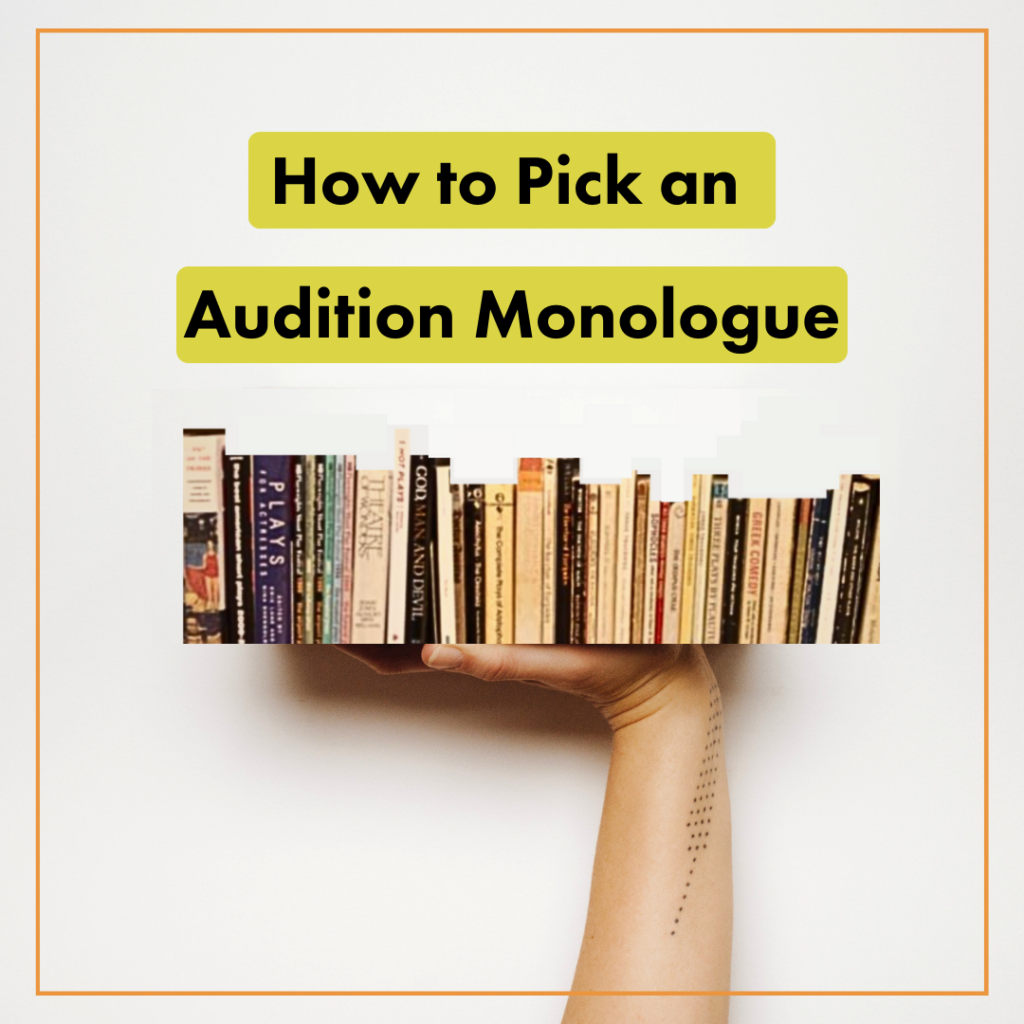7 tips to guide your search

The actor’s eternal struggle: having a monologue (or collection of monologues) in your back pocket. How many monologues should an actor have on hand? Since we regularly audition plays in many genres, it’s always a good idea to have at least 3 or 4 solid pieces ready. So, how do you choose work that showcases you as a performing artist?
When choosing a monologue, choose an active passage that ignites your passion! This will ensure that you can connect to it in a way that allows you to deeply explore all the different actions you can use to get what you want. This is your monologue and you should enjoy performing it!
Sarafina Vecchio, Chicago Acting Studio Instructor
1. Liven up your monologue.
A good monologue is essentially Active two-person scene. There is motivation and purpose behind what you say, and there is a clear reason for it. For example, an argument between two people is a great scene to watch as a solo piece because there’s an obvious conflict that affects your actions. Shurtleff’s second guideline is knowing what you’re striving for and what you’ll do to achieve it.
2. Data sources.
At ASC we recommend that you use plays as source material for finding monologues as they are the most versatile. The problem with acting out TV and movie scripts is that we’ve seen actors perform scenes on screen. We want to see your original take on the material – uninfluenced by watching, rewinding and re-watching TV/movie star performances.
I’ll never forget watching a clip of someone auditioning for Scarface, it was almost comical to see this guy play a character so closely related to Al Pacino. It was memorable, but unfortunately not in the right way.
Rachael Patterson, ASC Studio Director
3. It’s all about timing.
Timing really is everything. Although trends in monologue length are always changing, one thing is for sure – you can’t go wrong with a 1-minute monologue. Short and sweet is always your best bet!
4. Entertain us!
Ultimately, audiences want to be entertained. In the audition room, casting directors, producers, and the directors themselves all want to be drawn into the story you’re telling, so make it an interesting one! Finding a piece that goes on a journey, contains an arc, an element of surprise, humor, and/or storyline is like striking gold.

5. Relationships you can personalize.
Make sure you connect to your monologue. Lest you feel like the story doesn’t work for you as an actor – even after studying Shurtleff’s guidelines in depth – then the story you tell won’t be believable – and neither will your performance. Remember, hIntegrity is the keyso find a work that connects you the most.
If an actor truly connects with what they’re fighting for, I don’t care if the monologue is age or gender appropriate. Is it okay as long as there is a genuine need and relationship? I was sold.
—Christy Arlington, Artistic Director of Shakespeare on the Lake
6. Show off.
Find a monologue that best showcases your talent and range as an actor. This is your chance to perform solo and show off what you do best! Are you a born comedian? Are you good at commanding power, or are you good at instilling fear with your voice or stance? Take 1-2 minutes of your audition to show us off!
There is no perfect monologue. Try to choose something that’s charming, light-hearted, tells us something about you, and then leaves the room without making you or the person you’re auditioning feel pressured. Even on a bad day, strive for one piece of work that you can do well.
Kurt Naebig, ASC coach and coach
7. Please humor us.
Can a monologue have it all? Absolutely! As Shurtleff suggests, always Find humor in your scenes. Whether you choose a dramatic piece or not, you can bring a lighter moment to your audience by infusing your piece with light-hearted laughter. If your work is comedy in nature, make sure it’s based on a real need and the lighter moments will happen naturally.
Last, but probably most importantly – make sure to keep it light. Ultimately, no one wants to make you feel deeply uncomfortable or view you in a negative light, so after finding a monologue that has an element of humor, make sure you also find one that doesn’t contain profanity or crude sexual innuendos. . It’s just a bad look and you want to leave the room with a positive imprint of you and your great performance!
Need help with your monologue? You are in luck! Check out our monologue lessons with Kurt Naebig and a monologue course with Sarafina Vecchio.

